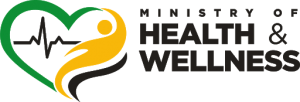Hypertension (High Blood Pressure) is described as a sustained elevation of an individual’s blood pressure at or above 140/90 mmHg. Persons with Hypertension usually have no symptoms, so the only way to find out if you have it is to go to your health care provider to get regular blood pressure checks.
(Go to Know Your Numbers for normal and abnormal blood pressure values).

There are two main types of Hypertension:
Primary or Essential Hypertension is the most common type of high blood pressure. It develops over time as you get older, and you are more likely to get it if others in your family have it. There is also no direct cause associated with getting this type of Hypertension.
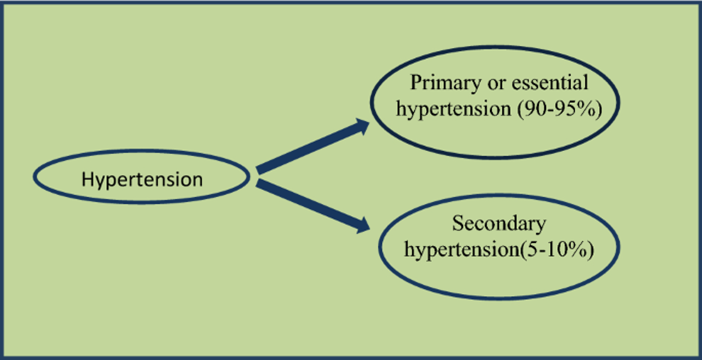
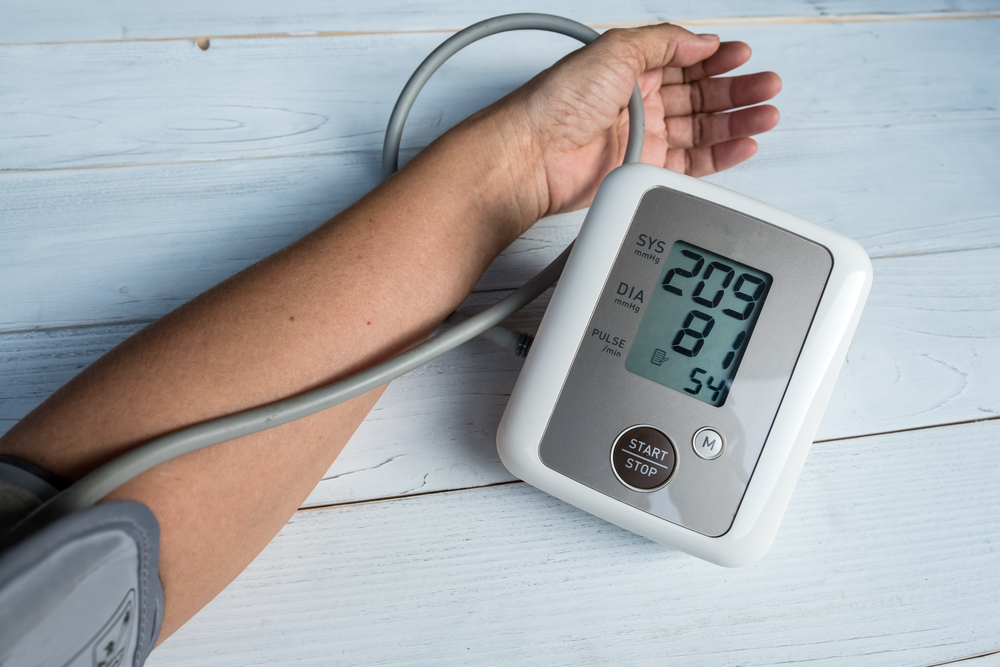
Secondary Hypertension is caused by another medical condition (such as kidney disease or a hormonal condition) or use of certain medicines (such as steroids). If your Hypertension is caused by another medical condition or medicine, treating that condition or stopping the medicine may lower your blood pressure.
Sometimes pregnancy contributes to high blood pressure as well.
Am I at risk of getting Hypertension?
Common risk factors for High Blood Pressure include:
- Age – as you get older the risk of developing High Blood Pressure increases
- Family history of High Blood Pressure – especially
- Eating too much salt/sodium or too little potassium
- Lack of physical activity
- Overweight or obese
- Drinking excess amounts of alcohol
- Stress
You can avoid getting Hypertension if you:
- Maintain a healthy weight
- Reduce salt or sodium intake
- Eat more fruits and vegetables
- Become more physically active
- Quit smoking
- Avoid excess alcohol
- Reduce and manage stress
- Visit your doctor for regular health checks
- Use medication properly
What are the signs and symptoms of Hypertension?
Hypertension is often called the “silent killer” because people do not have any symptoms or pain and do not know they are in danger. Very severe high blood pressure is a medical emergency which requires immediate medical attention.
Symptoms of very high blood pressure include:
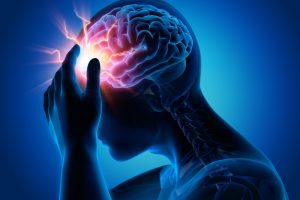
Headache
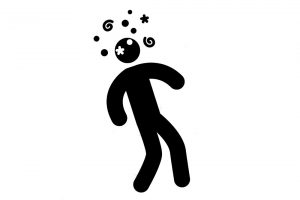
Dizziness, confusion or blurred vision
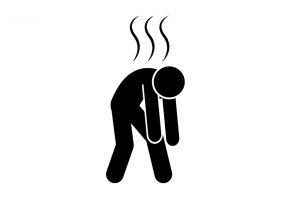
Fatique
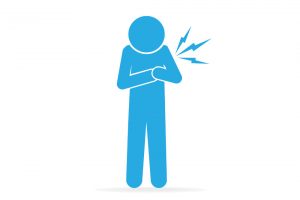
Chest pain, irregular heartbeat or difficulty breathing
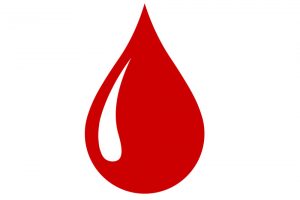
Nose bleed or blood in the urine
What if my Blood Pressure remains high?
The higher your blood pressure and the longer your blood pressure remains high, the more damage is done to your blood vessels and major organs. This damage leads to severe irreversible conditions know as Cardiovascular Disease, which include:
- Heart attack and angina – due to hardening and thickening of the arteries (atherosclerosis) that supply the heart
- Heart failure – the heart muscle becomes thicker as the heart works harder to pump blood around the body, causing it to get weak and unable to function properly
- Stroke – caused by atherosclerosis of the arteries that supply the brain
- Aneurysm – a bulge in major blood vessels, which may easily burst and cause severe life-threatening bleeding
- Kidney failure – due to weakened and narrowed blood vessels in your kidneys
- Blindness – due to thickened, narrowed or torn blood vessels in the eyes. This can result in vision loss
- Mental problems such as trouble with memory or understanding. It can also lead to a brain condition called dementia
What can I do to control Hypertension?
- Eat healthy – more fruits and vegetables, less salt and fat
- Be active – at least 30 minutes a day
- If you smoke, quit
- If you drink, ask your doctor how much is right for you
- Get regular check-ups with your doctor
- Take your blood pressure medication as prescribed
- Know your blood pressure numbers and work toward achieving the goals set with your doctor
Checking your Blood Pressure
Check your blood pressure by using a sphygmomanometer (blood pressure machine).
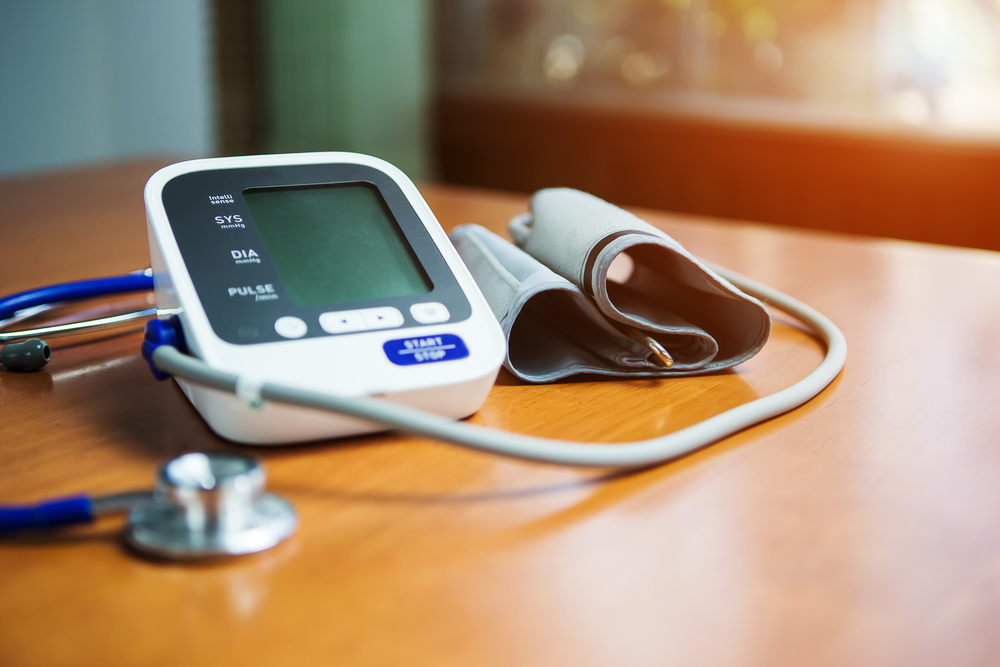
Proper techniques to be aware of while taking blood pressure reading:
- Don’t engage in conversation
- Cuff should be placed on bare arm
- Back should be supported
- Support arm at heart level
- Correct cuff size should be used
- Bladder should be empty
- Feet should be securely supported and not crossed
Persons living with Hypertension should get their blood pressure checked at each clinic visit. Ask your health care provider for additional guidance on monitoring your blood pressure at home.
Myths and Facts
Myth: If you don’t have any symptoms, you don’t have hypertension.
Fact: This is far from the truth. A local survey showed that that 4 out of 10 Jamaicans with raised blood pressure were unaware of their condition. This is why Hypertension is often called “the silent killer” – because persons with high blood pressure that show no symptoms can suddenly have a heart attack or stroke.
Myth: When medication brings your blood pressure down, you can stop taking them.
Fact: Absolutely not! Continue to take your medication even when your blood pressure is controlled, or else when you stop taking them, your blood pressure will get high again. There is no cure for Hypertension, so you may need to take medication every day for the rest of your life, unless your doctor advises you to stop taking them.
Myth: Only the doctor or nurse should check your blood pressure.
Fact: While getting your blood pressure checked by your health care provider is important, persons with hypertension should learn to monitor their blood pressure at home with a device that is approved by your health care provider.
Keeping a blood pressure journal that tracks changes over time is also highly recommended so that you can show your doctor at your next check-up, to help with making decisions about your treatment.
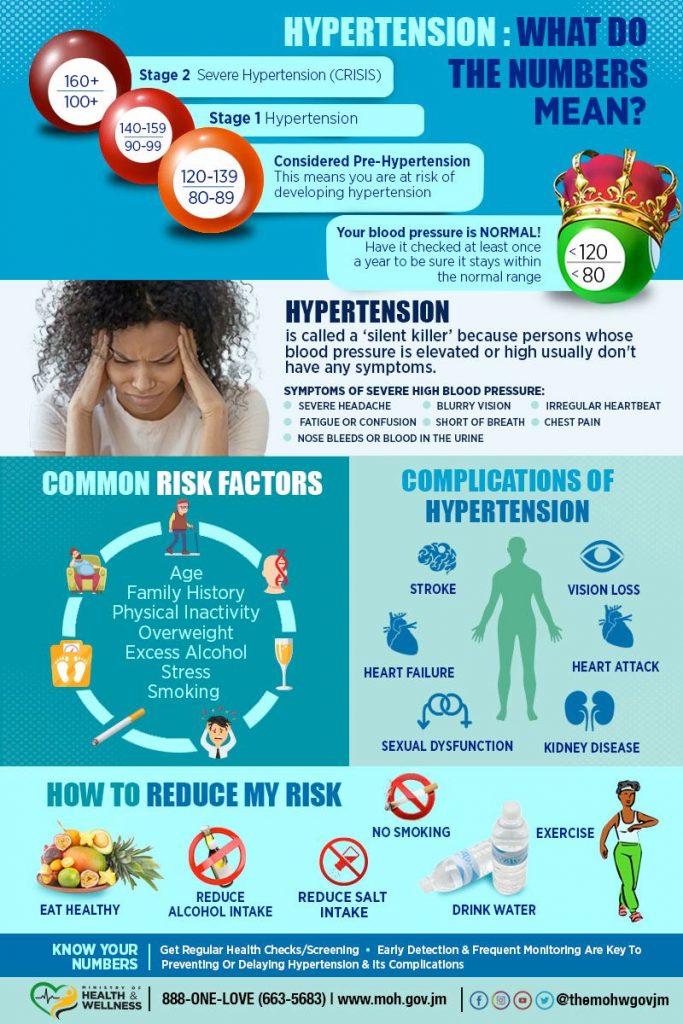
Visit the National Health Fund (NHF) website, https://www.nhf.org.jm/ , to see how you can become a NHF beneficiary and get your Hypertension drugs subsidized.
For additional support, contact the Heart Foundation of Jamaica at:
Address: 28 Beechwood Ave, Kingston 5, Kingston, Jamaica
Tele: 876-926-4378 | 876-929-3195
876-926-6492 | 876-619-7007-8
Email: [email protected]
Website: https://www.heartfoundationja.org/
